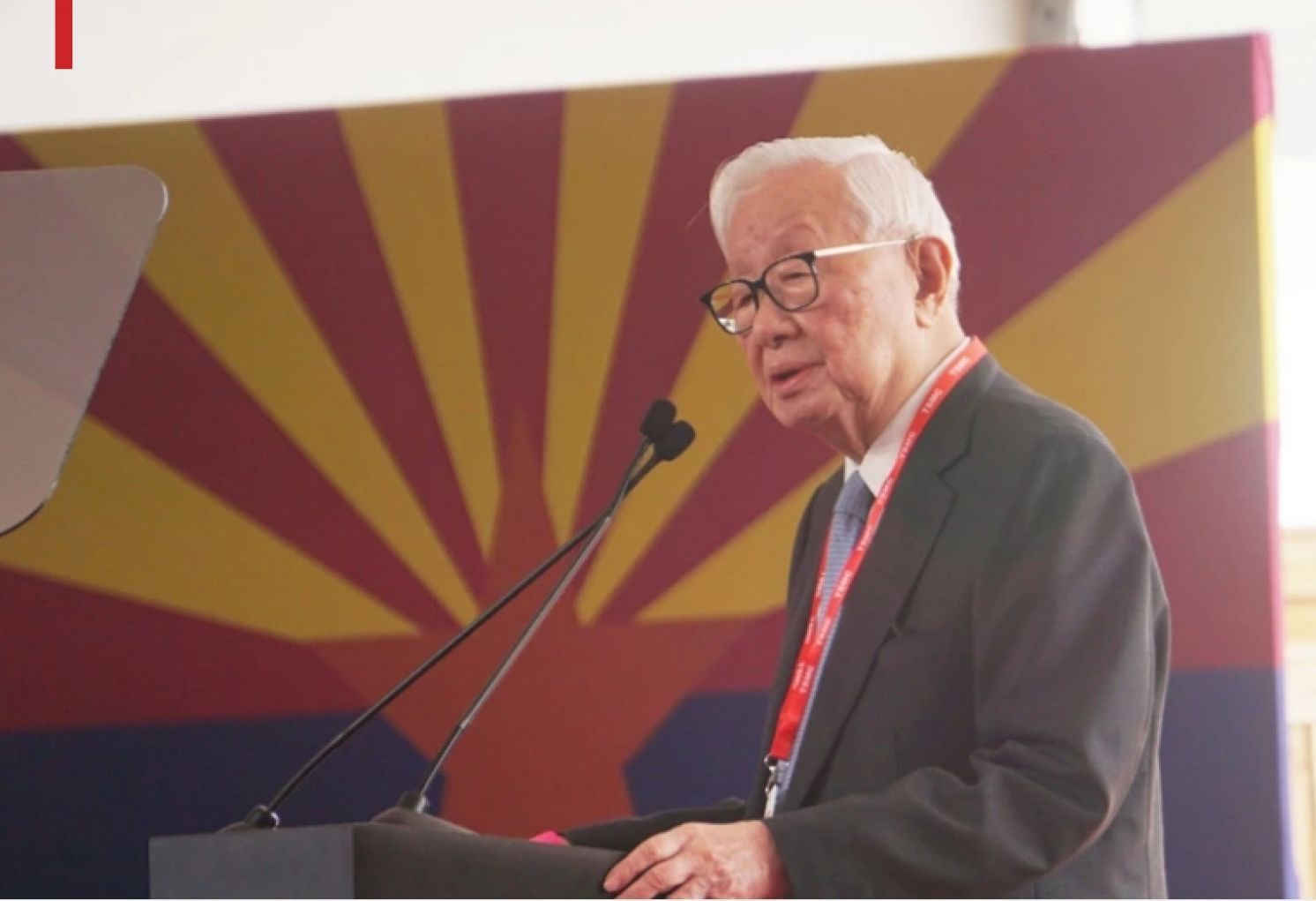
Blessing and "Curse" in Morris Chang's Remarks at Arizona Plant Tool-in Ceremony
The Storm Media Editorial, December 9, 2022
At the tool-in ceremony of the Taiwan Semiconductor Manufacturing Company’s (TSMC) new fab plant at Phoenix, Arizona, on December 6, founder Morris Chang, who has always been skeptical towards this investment, finally gave his blessing to the project in his address. At the same time, however, Chang also declared that "free trade is almost dead." The wisdom is worth pondering.
On October last year, at the banquet sponsored by the Monte Jade Science and Technology Association, Morris Chang opined that to reinstate chip production capability in the United States, even if you put in billions of investment, is a "mission impossible," for you will find that the cost is too high, there is a shortage of talent, and the supply chain is incomplete. What is more, it is also nearly impossible for Taiwanese to manage an American team.
In April this year, in a Brookings Institution’s podcast, Morris Chang reiterated that the cost of manufacturing chips in the United States is too high, that it is difficult to compete in the international market. Therefore, it is "an expensive and futile endeavor." Chang also told Speaker Nancy Pelosi the same thing at a dinner party in August in Taipei.
No such harsh words at the tool-in ceremony, which was attended by a large delegation of top chip and tech industry executives, including Tim Cook of Apple and Lisa Su of ADM, who all spoke favorably of the project. In the address, Chang indicated that things have changed, the condition at present is more favorable to the future development of TSMC. The Arizona plant has the blessing from the Founder at last.
According to Morris Chang, the change came from the big geo-political shift which created a new environment and a new atmosphere. According to Chang, globalization as well as free trade are almost dead, and the United States is the one that made this change.
At the Asia-Pacific Economic Conference (APEC) Economic Leaders' Meeting last year, Morris Chang commented that the main cause of chip shortage are underestimation of demand, natural disaster, and traffic jam on the freight logistics. "The best solution to the problem is free trade, free competition, and free markets," said Chang.
Morris Chang also indicated that the United States has advocated free trade for decades, but now it has put a string on free trade by insisting that the United States should manufacture chips locally. This new condition to free trade is bound to have negative consequences. That is why Chang stated that globalization as well as free trade are almost dead. This sounds somewhat like "a curse."
Although in reality we have not reached a death announcement yet, but globalization and free trade have met a wild head wind created by the United States. In the Inflation Reduction Act, the United States offers big subsidy to its electric vehicles, leading to a heated dispute with the European countries. The CHIPS and Science Act also appropriates $53 billion to subsidize fabs built in the United States, including TSMC's Arizona plant. In the past, the United States has always criticized China's subsidy to its state industries as "unfair trade." So, it might be fitting for Chang to announce that free trade is almost dead.
In Taiwan, there are heated debates on whether the Arizona plant is “hollowing-out Taiwan." It is normal in a free society that on this issue there are different views and assessments. What is not constructive is that the ruling Democratic Progressive Party’s (DPP) flanks, proper or improper, directly equate the view of "hollowing-out Taiwan" to China's "cognitive warfare," and that TikTok threw out the issue to disintegrate Taiwan's psychological defense, that TikTok should be banned, “or Taiwan will be destroyed."
There are pros and cons to TMSC's investment in the United States. Although the investment was made at the insistence of the United States, the debates have been there since TSMC announced it two years ago. TikTok did not threw the issue out all alone. It is too early to see if the investment is right or wrong. As the situation is evolving all the time, we should educate the public by offering them cogent narratives, even evidence. It is counter-productive to tag someone unjustifiably with unfair label. It only shows that DPP's flanks are diffident! So, stop the crap!